
Kivukoni: The Heartbeat of Dar es Salaam
Kivukoni is where the pulse of Dar es Salaam beats strongest, offering a perfect blend of the city’s rich history and vibrant modern life. As the nerve center of Tanzania’s economic capital, Kivukoni boasts a waterfront that stretches along the Indian Ocean, giving visitors a unique chance to experience the serene coastal vibes while being in the midst of urban hustle and bustle. One of the most iconic landmarks in Kivukoni is the Kivukoni Fish Market. Here, the day starts early as fishermen bring in their fresh catches, creating a lively atmosphere of bargaining and trading that provides a genuine taste of local life. For history enthusiasts, the National Museum and House of Culture offers an insightful journey through Tanzania's past, displaying everything from ancient fossils to contemporary art. Kivukoni is also home to several governmental and diplomatic buildings, including the State House and the central Bank of Tanzania, making it a place of significant political and economic importance. Strolling along the Kivukoni Front, visitors can enjoy breathtaking views of the ocean and the bustling port, which is a hub of maritime activity. The area is also dotted with numerous restaurants and cafes where you can savor Tanzanian cuisine while enjoying the sea breeze.
Local tips in Kivukoni
- Visit the Kivukoni Fish Market early in the morning for the freshest seafood and a lively local experience.
- Carry cash as most local vendors and smaller eateries do not accept credit cards.
- Wear comfortable walking shoes to explore the waterfront and nearby streets.
- Be mindful of local customs and dress modestly, especially when visiting governmental buildings.
Kivukoni: The Heartbeat of Dar es Salaam
Kivukoni is where the pulse of Dar es Salaam beats strongest, offering a perfect blend of the city’s rich history and vibrant modern life. As the nerve center of Tanzania’s economic capital, Kivukoni boasts a waterfront that stretches along the Indian Ocean, giving visitors a unique chance to experience the serene coastal vibes while being in the midst of urban hustle and bustle. One of the most iconic landmarks in Kivukoni is the Kivukoni Fish Market. Here, the day starts early as fishermen bring in their fresh catches, creating a lively atmosphere of bargaining and trading that provides a genuine taste of local life. For history enthusiasts, the National Museum and House of Culture offers an insightful journey through Tanzania's past, displaying everything from ancient fossils to contemporary art. Kivukoni is also home to several governmental and diplomatic buildings, including the State House and the central Bank of Tanzania, making it a place of significant political and economic importance. Strolling along the Kivukoni Front, visitors can enjoy breathtaking views of the ocean and the bustling port, which is a hub of maritime activity. The area is also dotted with numerous restaurants and cafes where you can savor Tanzanian cuisine while enjoying the sea breeze.
Iconic landmarks you can’t miss
National Museum and House of Culture
Explore Tanzania's vibrant history and culture at the National Museum and House of Culture in Dar es Salaam, a treasure trove of rich heritage.
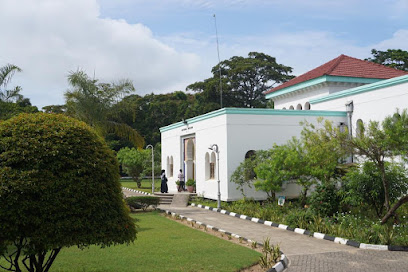
Kanisa Kuu la Mt. Yosefu (St.Joseph Cathedral Dar es Salaam)
Explore the breathtaking St. Joseph Cathedral in Dar es Salaam, a stunning example of Gothic architecture and a center of spiritual life in Tanzania.
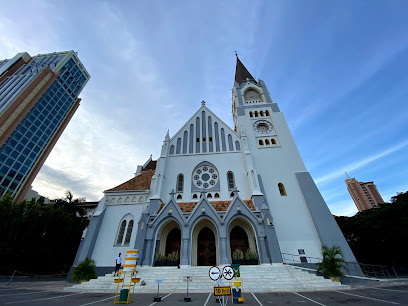
Askari Monument
Discover the Askari Monument, a powerful tribute to African soldiers in Dar es Salaam, celebrating history, culture, and resilience.
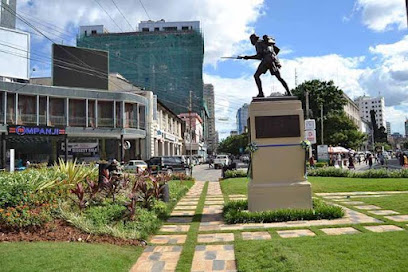
Kivukoni Bus Station - Kituo Cha Dala Dala
Explore the vibrant pulse of Dar es Salaam at Kivukoni Bus Station, where culture, transport, and local life converge in a bustling atmosphere.
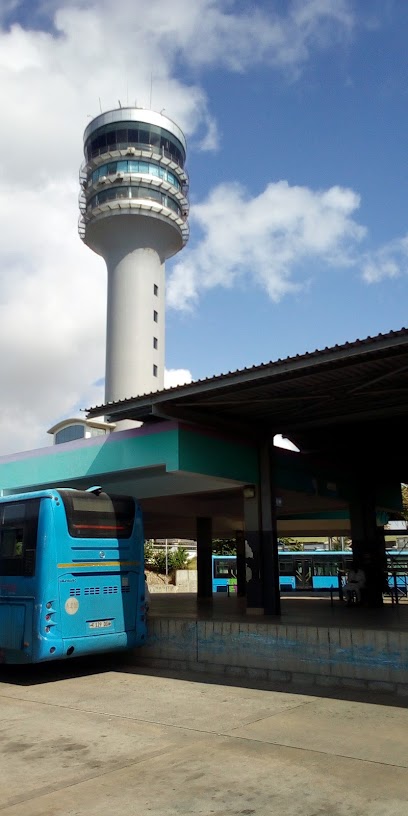
DTV Roundabout
Explore the vibrant heart of Dar es Salaam at DTV Roundabout, a historical landmark that embodies the essence of Tanzanian culture and city life.
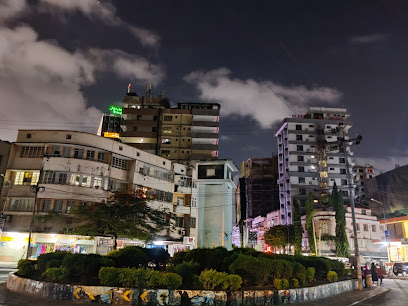
Botanical Garden
Discover the enchanting Botanical Garden in Dar es Salaam, where tropical beauty and tranquility await every visitor.
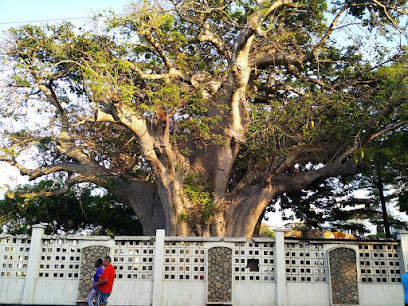
Old Boma
Explore Old Boma, a historical landmark in Dar es Salaam, where culture meets stunning views of the city and rich Tanzanian heritage awaits every visitor.
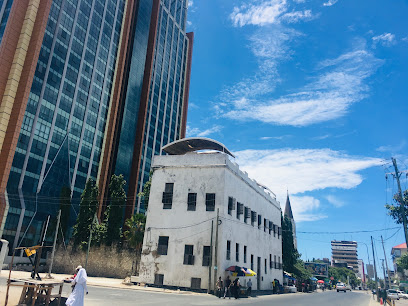
Uhuru Monument
Explore the Uhuru Monument in Dar es Salaam, a historic tribute to Tanzania's independence, surrounded by lush gardens and vibrant local culture.
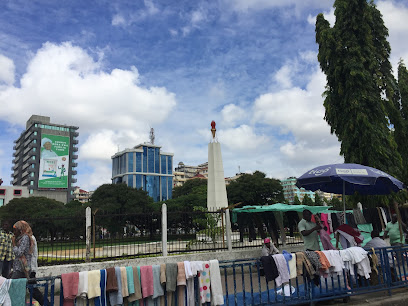
Azam Roundabout
Discover the vibrant culture and history at Azam Roundabout, a bustling landmark in the heart of Dar es Salaam, Tanzania.
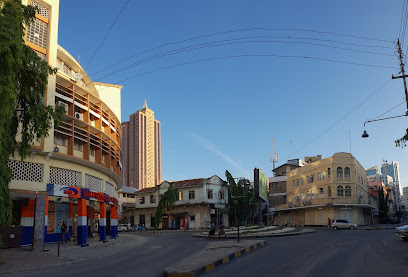
Muembe Korokocho
Explore Muembe Korokocho, a significant historical landmark in Dar es Salaam symbolizing resilience and community spirit in healthcare.

Unmissable attractions to see
Old Boma
Explore the historic Old Boma in Dar es Salaam, where stunning coastal views meet rich cultural heritage and vibrant local life.
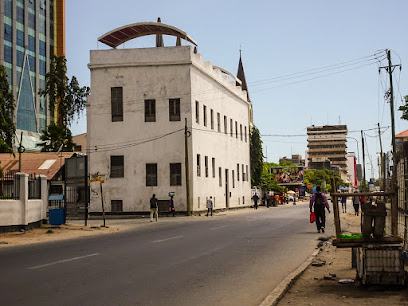
Uhuru Monument
Discover the Uhuru Monument in Dar es Salaam, a powerful symbol of Tanzania's independence and a must-visit for history enthusiasts and cultural explorers.
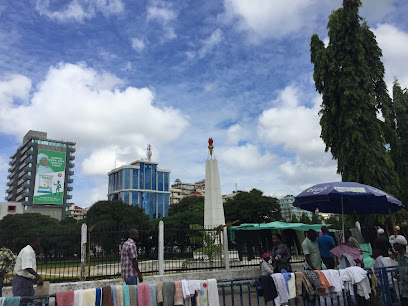
Old light house
Discover the historic Old Lighthouse in Dar es Salaam, a stunning landmark that offers breathtaking ocean views and a glimpse into maritime history.
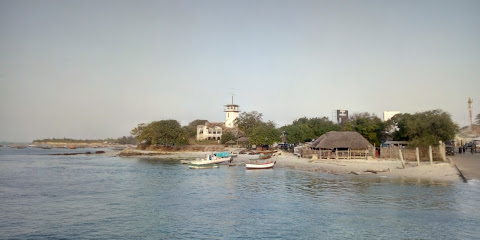
Coco Beach (Boat rides)
Discover Coco Beach in Dar es Salaam, a stunning coastal retreat offering boat rides, vibrant local culture, and breathtaking ocean views for an unforgettable experience.

Kellotorni
Discover Kellotorni, a stunning tourist attraction in Dar es Salaam, offering breathtaking city views and a glimpse into Tanzania's rich cultural heritage.
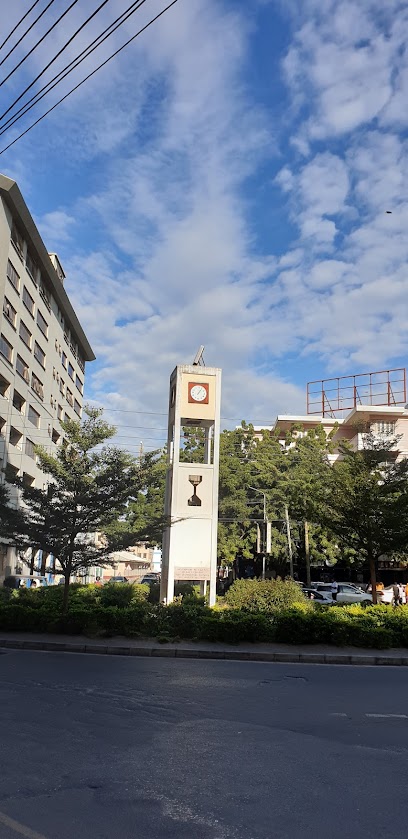
Essential places to dine
Akemi Revolving Restaurant
Discover Akemi Revolving Restaurant: A Unique Dining Experience Overlooking Dar es Salaam's Stunning Skyline.
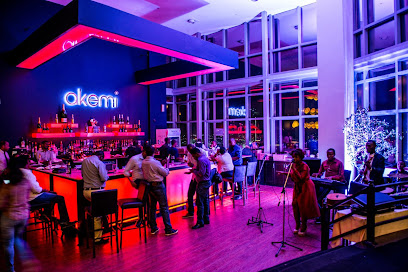
Grand Restaurant
Experience the vibrant flavors of Tanzania at Grand Restaurant in Dar es Salaam - where culinary excellence meets exceptional service.
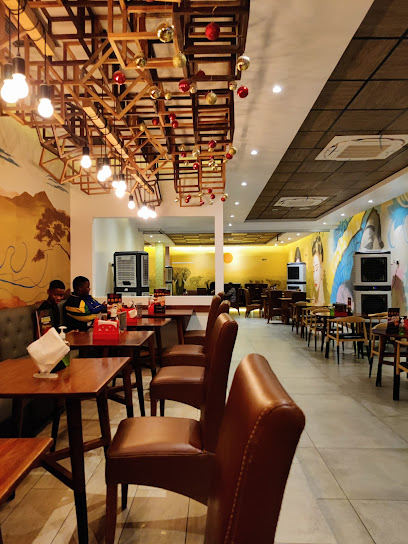
Ten To Ten Restaurant
Discover the vibrant culinary scene at Ten To Ten Restaurant in Dar es Salaam, offering local flavors and unforgettable dining experiences.
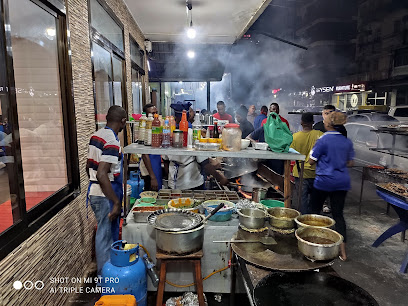
The Backyard
Experience the vibrant flavors of Tanzania at The Backyard, where delicious cuisine meets a welcoming atmosphere in Dar es Salaam.
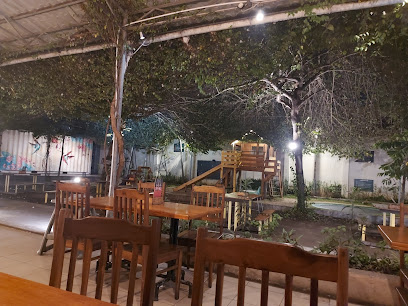
City Square Restaurant
Discover the vibrant flavors of Tanzania at City Square Restaurant in Dar es Salaam - where local meets international cuisine.
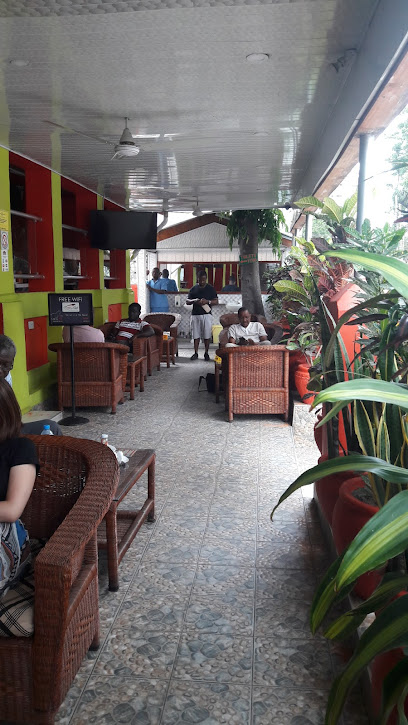
Urban Jiko Restaurant
Experience authentic Tanzanian cuisine at Urban Jiko Restaurant in Dar es Salaam - where every dish tells a story.
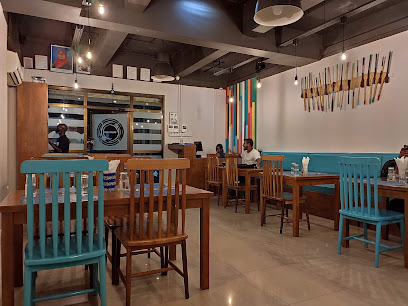
Maratha Club and Restaurant
Experience the vibrant flavors of Tanzania at Maratha Club and Restaurant - where local cuisine meets international flair.
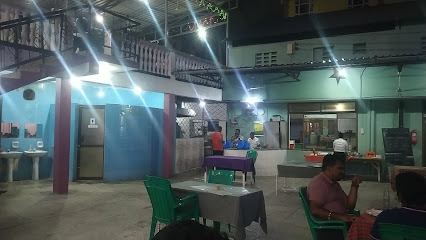
Meikaf masaki restaurant
Discover authentic Tanzanian flavors at Meikaf Masaki Restaurant in Dar es Salaam - where every dish tells a story.
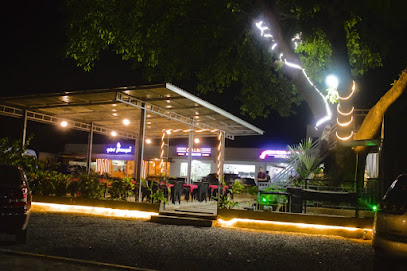
Jahazi Restaurant
Experience authentic Tanzanian flavors at Jahazi Restaurant in Dar es Salaam – where every meal tells a story.
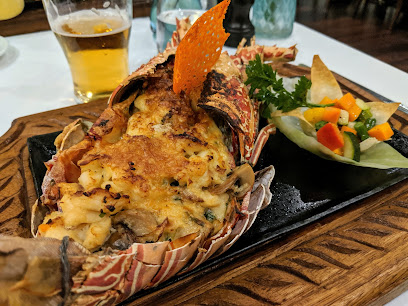
Fire restaurant dar es salaam
Discover delightful dishes at Fire Restaurant in Dar es Salaam - where Tanzanian flavors meet international cuisine in a vibrant setting.
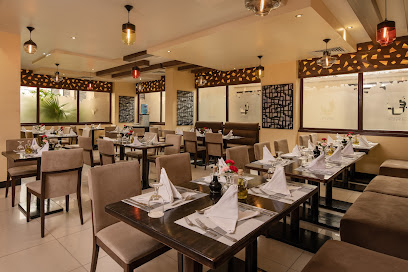
Markets, malls and hidden boutiques
House of Culture Gift Store
Explore the vibrant artistry of Tanzania at the House of Culture Gift Store, where every purchase supports local artisans and cultural heritage.
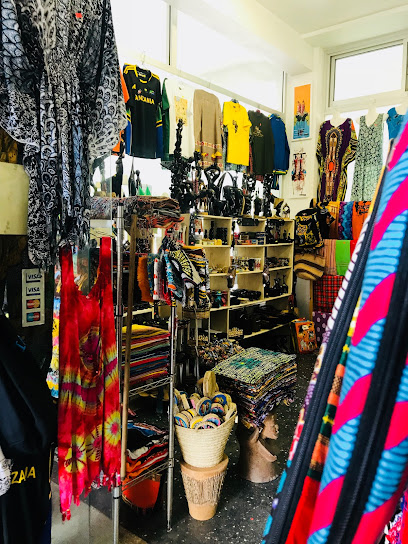
Moraf Gift Shop
Discover authentic Tanzanian gifts and treasures at Moraf Gift Shop in Dar es Salaam, where local culture meets unique craftsmanship.
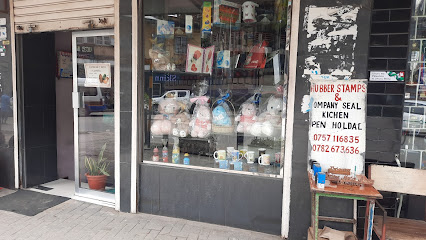
Karibu Arts & Crafts Ltd
Explore the vibrant world of Tanzanian crafts at Karibu Arts & Crafts Ltd, where every piece tells a story of culture and creativity.
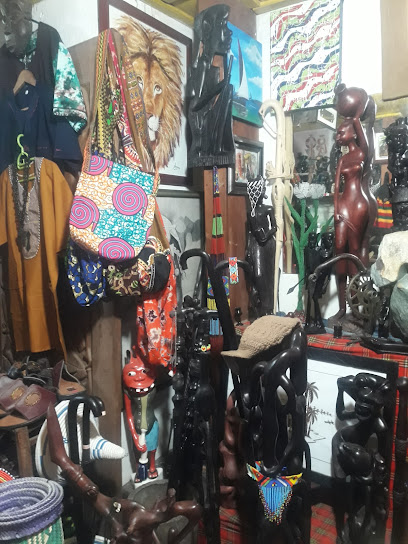
Walji's Gift Store Limited
Explore the vibrant culture of Tanzania through unique souvenirs and local crafts at Walji's Gift Store in Dar es Salaam.

Zawadis.com
Explore Zawadis: The ultimate gift shop in Dar es Salaam for unique souvenirs, fashion accessories, and local craftsmanship.

National Museum gift shop
Discover unique Tanzanian crafts and souvenirs at the National Museum Gift Shop, a treasure trove of cultural artifacts in Dar es Salaam.

Gifts Kingdom
Discover unique Tanzanian souvenirs at Gifts Kingdom in Dar es Salaam, where local culture meets craftsmanship in every piece.

Imalaika
Explore unique fashion and local craftsmanship at Imalaika, a clothing store in Dar es Salaam that embodies the spirit of Tanzanian style.

P_picha mbao
Discover the essence of Tanzania at P_picha mbao, your premier gift shop for unique souvenirs and handcrafted treasures.

SAMIKH
Explore Samikh in Dar es Salaam for unique gifts, local crafts, and a taste of Tanzanian culture.

Essential bars & hidden hideouts
Level 8 rooftop bar
Experience breathtaking ocean views and vibrant nightlife at the Level 8 Rooftop Bar in Dar es Salaam's Hyatt Regency.
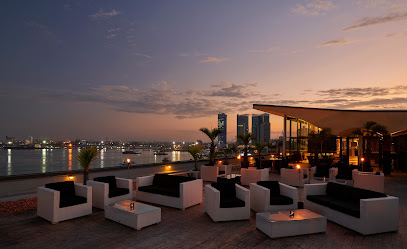
Skybar
Discover the stunning views and vibrant atmosphere of Skybar, the ultimate rooftop destination in Dar es Salaam for an unforgettable night out.
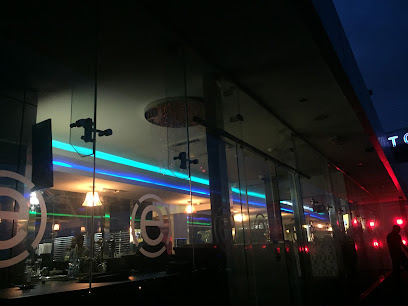
Holiday Inn Bar @ One
Experience the vibrant atmosphere of the Holiday Inn Bar in Dar es Salaam, where great drinks and a lively ambiance await!
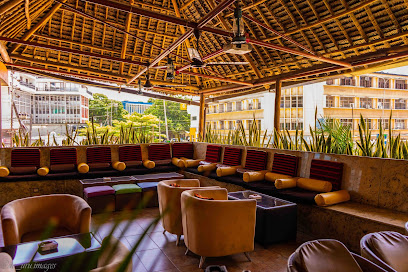
Dark knight drinks
Discover the vibrant nightlife of Dar es Salaam at Dark Knight Drinks, where local charm meets an extensive drink selection in a lively atmosphere.
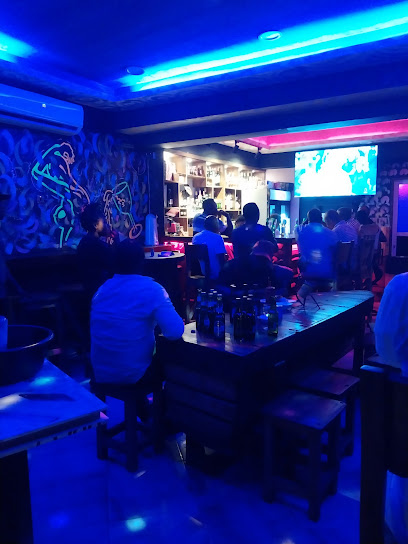
Kivulini pub
Experience the vibrant nightlife at Kivulini Pub in Dar es Salaam, where local flavors and friendly faces create unforgettable memories.

portview pub ilala dar es Salaam
Experience the vibrant nightlife at Portview Pub in Dar es Salaam, where local culture meets friendly gatherings and refreshing drinks.

Tropicana Bar & Lounge
Experience the vibrant nightlife and tropical charm at Tropicana Bar & Lounge in Dar es Salaam, where relaxation meets entertainment.

Pannia pub
Experience the vibrant nightlife at Pannia Pub in Dar es Salaam, where local brews meet a welcoming atmosphere and friendly faces.
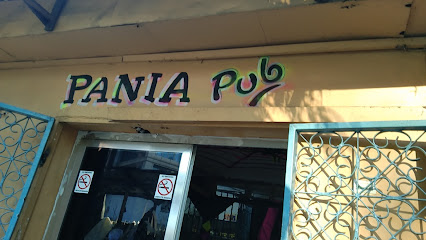
4U Executive Pub
Experience the vibrant nightlife at 4U Executive Pub in Dar es Salaam, where local culture meets a lively atmosphere.

KUMBYA PUB AND LODGE
Experience the lively culture and social scene at Kumbyah Pub and Lodge, a premier destination in Dar es Salaam for drinks and camaraderie.
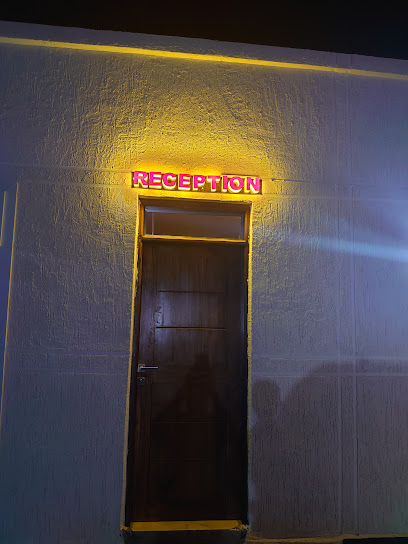
History of Kivukoni
-
Kivukoni's history is deeply intertwined with the colonial era, especially during the late 19th century when Dar es Salaam was established as a trading port by the Germans. Kivukoni was initially a site for the Swahili traders who interacted with various cultures, including Arab and Indian merchants. The area became pivotal for trade in ivory, cloves, and other goods, laying the groundwork for its development as a commercial hub.
-
In the early 20th century, Kivukoni evolved as the location of one of Dar es Salaam's most significant markets, known as the Kivukoni Fish Market. This vibrant market not only served as a focal point for local fish trade but also became a social and cultural meeting place for the diverse communities in Dar es Salaam, reflecting the city’s multicultural fabric.
-
Following Tanzania's independence in 1961, Kivukoni experienced a cultural renaissance. The area became a center for political activism and cultural expression, reflecting the aspirations of the newly independent nation. The establishment of cultural institutions and community programs in Kivukoni promoted Tanzanian arts, music, and tradition, contributing significantly to the national identity.
-
In the late 20th and early 21st centuries, Kivukoni faced challenges related to urbanization and population growth. The area has seen rapid development, with new infrastructure projects and residential developments emerging. However, this growth has also posed challenges, including issues related to housing, environmental sustainability, and the preservation of Kivukoni's rich cultural heritage.
-
Kivukoni is historically significant for its connection to the maritime heritage of Dar es Salaam. The Kivukoni waterfront serves as a crucial point for ferry services, connecting the mainland to nearby islands. This has kept alive the traditions of seafaring and fishing that have been part of the local economy and culture for centuries, making Kivukoni a living testament to the region's maritime history.
Kivukoni Essentials
-
Kivukoni is easily accessible from various neighborhoods in Dar es Salaam. From the city center, you can take a taxi or a ride-sharing service, which takes about 15-30 minutes depending on traffic. Public transport options include daladalas (minibuses) that run frequently from locations like Kariakoo and Posta. If you're coming from the airport, taxis are available, and the journey to Kivukoni typically takes around 30-45 minutes.
-
Kivukoni is best explored on foot, especially along the waterfront and in the bustling local markets. For longer distances, you can use daladalas, which are the local minibuses, or take a taxi. Bicycles can be rented from various shops, and riding can be a great way to see the area at your own pace. Be mindful of traffic, as it can be congested.
-
Kivukoni is generally safe for tourists, but it is advisable to stay vigilant. Areas around the fish market can be crowded, so keep an eye on your belongings. Avoid walking alone at night in poorly lit areas and be cautious of pickpockets in crowded places. It’s best to refrain from visiting areas like Msasani and parts of Temeke at night, as they have higher crime rates.
-
In case of an emergency, dial 112 for police assistance, 115 for ambulance services, and 116 for fire services. There are several hospitals and clinics in the vicinity, including the Muhimbili National Hospital. It's advisable to have travel insurance that covers health emergencies. For minor issues, pharmacies are accessible throughout the neighborhood.
-
Fashion: Do wear lightweight, modest clothing suitable for the tropical climate. Don’t wear revealing clothes, especially in religious sites. Religion: Do respect local customs; dress conservatively near mosques. Don’t engage in public displays of affection. Public Transport: Do give up your seat to the elderly and be courteous. Don’t eat or drink on public transport. Greetings: Do greet people with a smile and a handshake. Don’t be overly familiar without permission. Eating & Drinking: Do try local dishes and accept food offers. Don’t refuse hospitality, as it may offend your hosts.
-
To experience Kivukoni like a local, visit the bustling Kivukoni Fish Market early in the morning to see the local fishermen at work. Try local street foods such as 'ugali' and grilled fish along the waterfront. Engage with local vendors and learn about their crafts. For a unique experience, take a boat ride from the Kivukoni docks to nearby islands or beaches. Lastly, learn a few Swahili phrases; locals appreciate the effort and it enhances your experience.
-
When visiting Kivukoni, it’s important to be aware of local customs. Always ask for permission before taking photographs of people or private property. When entering homes or religious sites, remove your shoes as a sign of respect. Participate in local traditions and ceremonies if invited, as this fosters goodwill and enhances your travel experience. Be mindful of the local pace of life, and enjoy the vibrant atmosphere.
Nearby Cities to Kivukoni
-
Things To Do in Zanzibar City
-
Things To Do in Stone Town
-
Things To Do in Morogoro
-
Things To Do in Tanga
-
Things To Do in Diani Beach
-
Things To Do in Mombasa
-
Things To Do in Dodoma
-
Things To Do in Malindi
-
Things To Do in Iringa
-
Things To Do in Moshi
-
Things To Do in Arusha
-
Things To Do in Lamu
-
Things To Do in Singida
-
Things To Do in Nairobi
-
Things To Do in Mbeya









